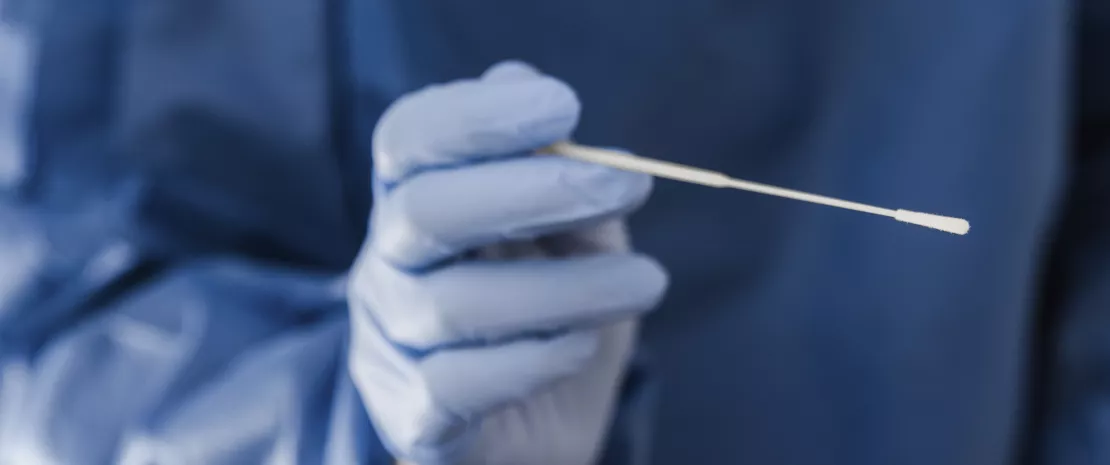Covid-19: oropharyngeal microbiota composition as a predictor of mortality?
What if the abundance of the oropharyngeal microbiota could be used to predict mortality for Covid-19 patients from the moment they are admitted to the hospital? This study appears to demonstrate just that, as well as confirming the extent to which antibiotics and ventilation disrupt this microbiota.
Lay public section
Find here your dedicated section
Sources
This article is based on scientific information

About this article
No more age- or weight-based triaging for Covid-19 patients admitted to the hospital. In the future, measuring the abundance of two bacterial species in the oropharyngeal microbiota could become the gold standard, thanks to its superior reliability. These are the claims made by a German team who believe this microbiota plays a crucial role, since it regulates host immunity, homeostasis of the mucous membranes, and defense against pathogens. However, previous studies have been less conclusive. Most likely because the majority focused on patients with severe Covid-19, where numerous intervening factors (e.g., antibiotic therapy, invasive mechanical ventilation, etc.) could also have altered the diversity and composition of the microbiota samples.
When antibiotics and ventilation disrupt the oropharyngeal microbiota
This cross-sectional, multi-center clinical study (7 German centers) therefore adapted its methodology: oropharyngeal swabs were taken from 72 healthy adults, 112 patients with non-SARS-CoV-2 infections (mild upper respiratory tract infections or critical pneumonia), and patients with mild, moderate or severe Covid-19 (n=36, 37 and 65). The total study population was 322 participants aged 21 to 93 years.
The results? Broad-spectrum antibiotics and invasive mechanical ventilation appear to destabilize the oropharyngeal microbiota: there is a loss of diversity and severe dysbiosis in Covid-19 patients admitted to the hospital with moderate or severe disease, or when the sampling is performed during prolonged hospitalization.
Two bacterial species can predict mortality
The most important finding was that samples harvested promptly after admission (to avoid alteration due to hospital care) have a signature predictive of Covid-19 mortality, according to artificial intelligence models (machine learning). A lower abundance of two bacterial genera, Neisseria (and more specifically the species Neisseria subflava) and Haemophilus (species Haemophilus influenzeae, parainfluenzae and pittmaniae) considerably increase the risk of death. And this predictive model is more reliable than models based on clinical variables such as age, sex, or obesity. The underlying mechanisms have not yet been explained, but it is possible that these bacteria regulate innate immune response and cytokine production.
The signature of the oropharyngeal microbiota, which is easily accessible upon admission, could therefore be used for patient stratification purposes. Crucially, this would mean better care, more appropriate treatment from the outset, and optimal allocation of resources and intensive care staff.








